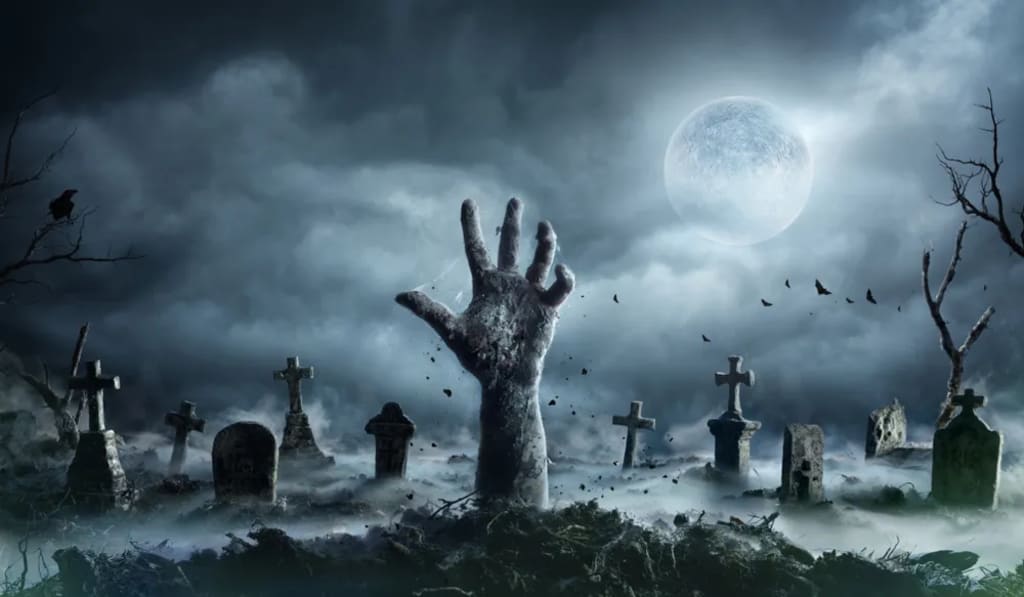
In a world where feral creatures resembling humans roam the streets, the *zombie apocalypse concept is not merely fiction.
The place where the undead originated
Haitian folklore- speaks of zombies resurrected by dark magic, controlled by sinister witch doctors. During the US occupation of Haiti, reports emerged of individuals claiming to have been turned into zombies by witch doctors, only to reappear after years with fitful memories.
The scientific investigation pointed to the use of powerful neurotoxins and substances like Datura stramonium, derived from Jimsonweed, causing a zombie-like state in affected individuals. However, the likelihood of a widespread zombie plague arising from such cases is minimal. The chemicals involved could be lethal if not administered precisely, and the behaviors are more linked to kidnapping and enslavement rather than contagion.
Parasitic animals and plants:
Moving beyond human scenarios, the fungal kingdom introduces a more sinister aspect with Ophiocordyceps (Ophiocordyceps unilateralis) pathogenic fungus targeting ants. This fungus manipulates ant behavior, leading them to spread fungal spores before succumbing to death. Although disturbingly named "zombie ants," the likelihood of this fungus jumping to larger species like humans is limited, given our different physiology and ability to detect and respond to infections.
Parasitic wasps, infamous for laying eggs inside other creatures, including spiders, exemplify nature's macabre strategies. (Zatypota Percontatoria), a wasp species influences spider behavior as larvae grow inside them. While unsettling, the wasp's impact on humans is improbable, as their reproductive cycle is adapted to smaller creatures with exoskeletons.
Seemingly innocent, plants fall prey to parasitic bacteria like phytoplasma, rewiring plant morphology to spread the bacteria efficiently. While plants suffer from this manipulation, humans are unlikely victims, as the bacteria lack the tools to exploit our physiology for spreading.
(Toxoplasma Gondi), A parasite with a widespread presence, displays an eerie ability to influence the behavior of infected rodents, making them more susceptible to cat predation. While it can infect humans, the likelihood of it causing a zombie-like apocalypse is low, as humans possess a higher cognitive ability to notice and respond to changes in behavior caused by the parasite.
(Mad Cow Disease) , a prion disease affecting the brain, has eerie parallels with fictional zombie scenarios. Although deadly, it lacks the active desire to spread rapidly and induce aggressive behavior, mitigating the risk of a zombie apocalypse.
Exploring ancient permafrost, scientists discovered Pithovirus, a giant virus with the potential to awaken after thousands of years. While not an immediate threat, the existence of ancient viruses raises concerns about possible unknown pathogens lurking in the permafrost.
The prospect of regenerating brain tissue using stem cells and nanorobotics introduces a futuristic twist. While these technologies hold promise for medical advancements, the idea of inadvertently creating compliant individuals or a scenario resembling a zombie plague remains speculative.
How could you survive in a zombie apocalypse?
In a world overrun by reanimated corpses craving human flesh, surviving a zombie apocalypse becomes paramount. Instead of hunkering down in a city, head to less populated areas, and consider finding refuge on a boat. Zombie-proof your safe house by choosing elevated, hard-to-reach spots and fortifying them with sturdy materials.
Fashion a suit of armor using whatever you can find, arm yourself, and avoid unnecessary confrontation with zombies. When gathering essentials, be discreet to avoid attracting attention, and mask your scent by camouflaging yourself in zombie flesh or using unconventional perfumes like "Ode to Death."
Ultimately, surviving a zombie apocalypse requires strategic thinking, resourcefulness, and a willingness to adapt to the ever-changing undead landscape. Stay vigilant, stay quiet, and above all, stay alive.
"Well for me to survive, Where a city * was overrun by a flesh-eating corpse, I would gather and secure resources first and go to a cold region where it will be impossible for them to come.
In conclusion:
While nature presents intriguing and sometimes terrifying phenomena, the likelihood of a true zombie apocalypse remains confined to folklore, fiction, and distant scientific speculation. Nature's strategies may be gruesome, but the intricate complexities of human physiology make the prospect of a widespread zombie outbreak highly improbable.






Comments
There are no comments for this story
Be the first to respond and start the conversation.